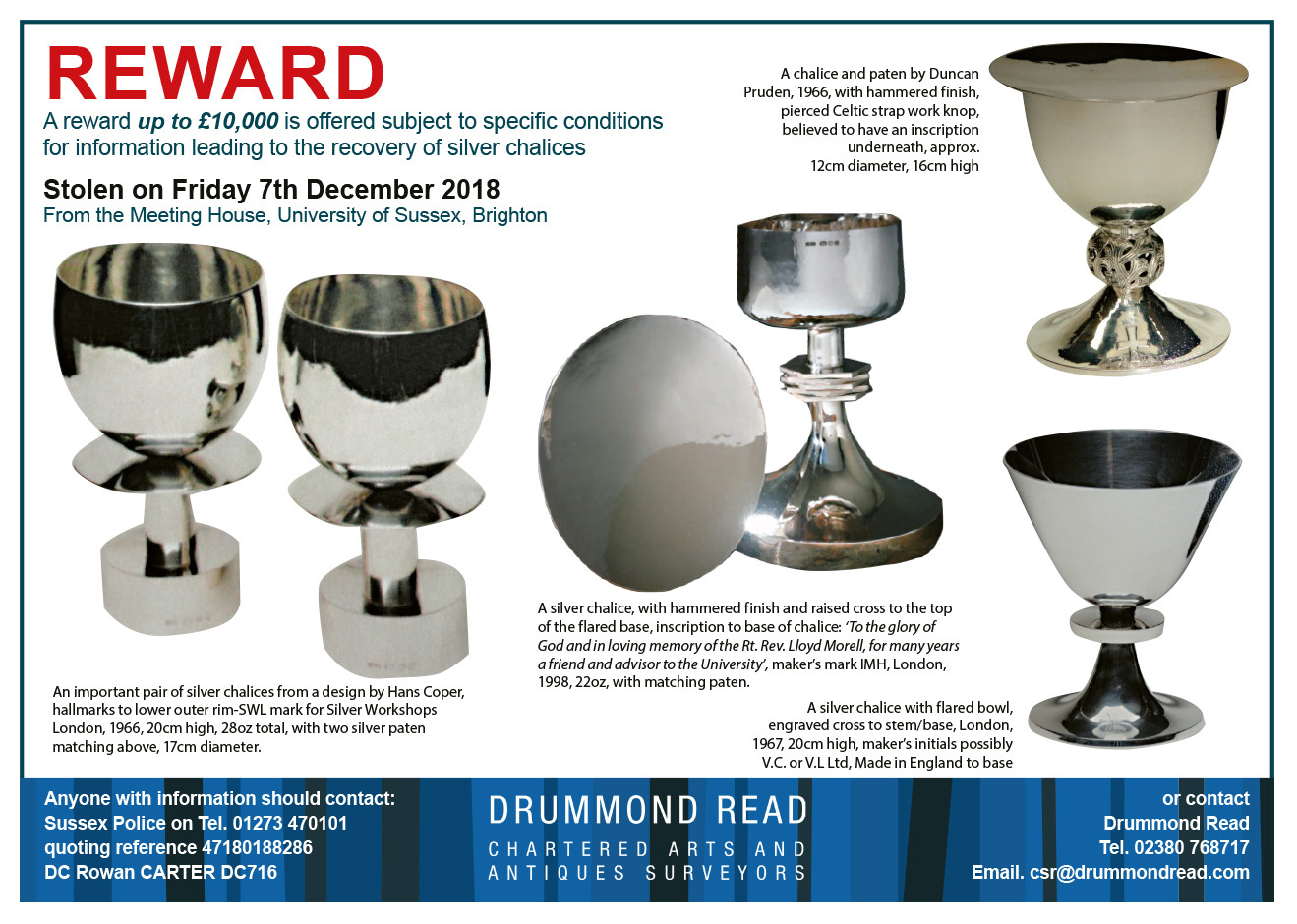

November 2019

‘Reward Offered” How often have you seen this on a local lamppost in relation to a missing cat? We can only hope that it works to reunite owner and pet. It certainly gains our attention, we are all human and the possibility of a reward is always eye catching. This is a tried and tested method of raising awareness of a loss and helping to secure safe return of Tiddles or perhaps even a valuable vintage Rolex. It is a method we use regularly, often with much success.
Antiques and valuables that have been stolen can be difficult to recover, police forces are often busy with more pressing matters and insurance companies don’t always know how to go about trying to recover items or have the resources necessary to do this themselves. Consequently we find a well placed advert with the right images and design can work wonders in alerting those who may come across the stolen goods and encourage them to get in touch with us or the necessary authorities and help secure their safe return.
We recently worked on a claim with the University of Sussex in relation to some pieces of silver that had gone missing from the Meeting House at the University. These were important site-specific items by some of the best designers of their day that were intended to complement the surrounding architecture by Sir Bail Spence. This was a loss of unique and important items and their return was of the utmost importance to the University.
Working amongst the Universities records and archives our specialists were able to gain a full and thorough understanding of the items that had been stolen. Working closely with the insurers we advised that we had been able to gather sufficient information to be able to place a meaningful advert in the Antiques Trade Gazette. This is a weekly paper which is seen by almost everyone in the Antiques business and it only takes one well placed advert to let most of the people working in the field know that these items are being sought. A handsome reward does wonders for helping this information stick in people’s minds and should information received result in their recovery then everyone is happy. The University would recover their items, the finder would get their reward and the insurance company would not only save money but also be able to know they had been of real assistance to their client. Everyone happy … that is except the perpetrators of the crime!
Rewards can play an important part in our work, carefully judged, advertised in the correct way and sensibly presented, they can hold the key to recovery.
Dr Matthew Denney FRICS